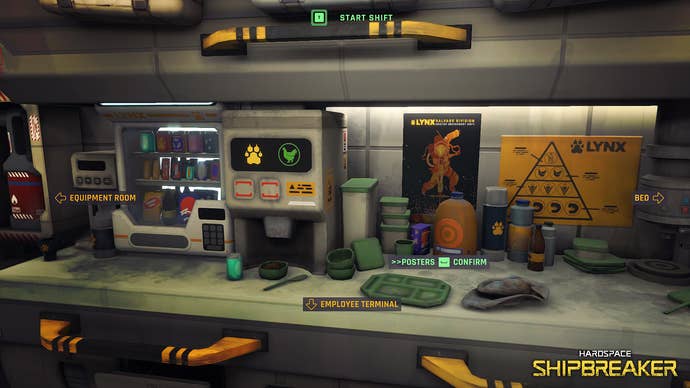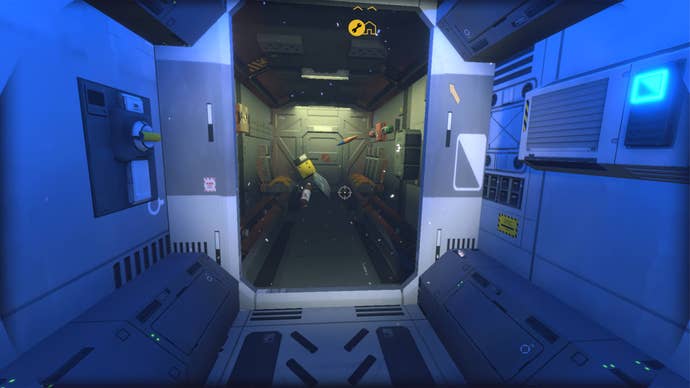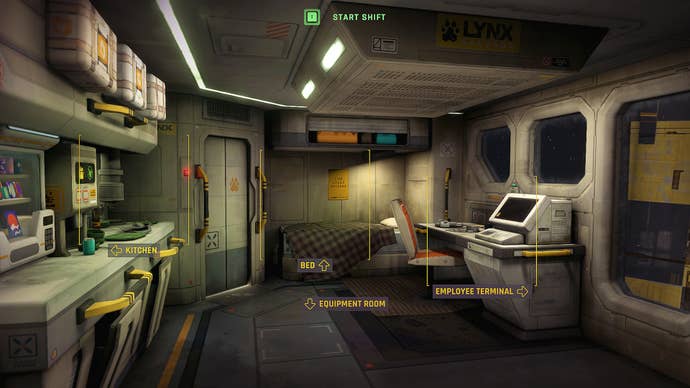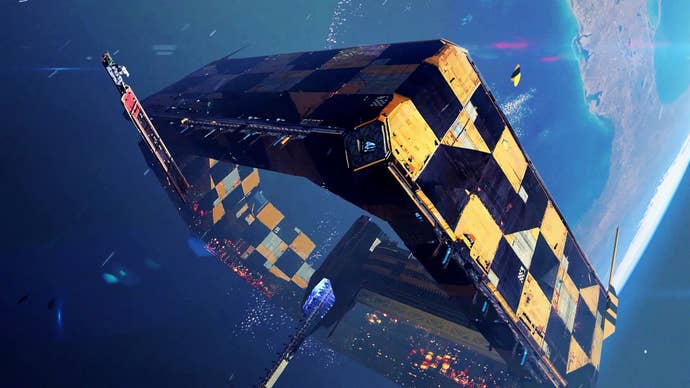Hardspace: Shipbreaker – now on Xbox Game Pass and PS5 – is an essential, searing rejection of sci-fi tropes
Mundanity, repetition, hopelessness... these aren't things you'd usually consider essential. So how does Hardspace: Shipbreaker make them feel so poignant?
Update: This article was originally published in May 2022 as Hardspace: Shipbreaker arrived on Xbox Game Pass for PC. It was republished on September 21 when the game arrived on Xbox Game Pass for console, and launched on PS5. The game remains as essential as ever.
Video games love space. It’s easy to see why – the setting allows for impossible vistas and a sense of wonder. It facilitates so many childhood dreams of having our own spaceships to take us on cosmic adventures, filled with fantastic creatures and laser beams. It usually goes hand-in-hand with a general air of optimism and hope, influenced by the vaguely utopian visions of the future of Star Trek and other foundational works of popular science-fiction.
It’s something that used to be endlessly appealing in childhood, but lately it’s been ringing increasingly hollow the further into the future we get. Hardspace: Shipbreaker is refreshingly aware of this, bringing the fantasy of life in space crashing back down to Earth.
Hardspace casts you as an indentured mechanic, living alone in a gigantic garage in high Earth orbit and saddled with a billion dollar debt to the LYNX megacorporation – the price of gainful employment away from the now toxic surface. This is the only chance you’ll ever have of seeing the stars, the slim hope that you’ll one day pay off your debt and jet off to the bourgeois outer colonies.
Until then, your days are filled with Shipbreaking – the process of meticulously (or haphazardly, if you prefer) dismantling and stripping disused spaceships for parts and raw materials. Every 15 minute long shift ends with an itemised breakdown of every penny of value you managed to extract – minus the rental costs for your tools, room-and-board, and other service fees. Everything else goes towards paying your debt, another spit in the ocean.

The view from the only window in your tiny habitation pod is of endless corporate detritus amidst a sea of scrap. A hulking railgate – a central component of the interplanetary travel network – occasionally pulses with activity, a reminder of a bigger universe that you’ll most likely never live to see. The daily grind settles into that paradoxical groove of half soul-crushing/half satisfying that a lot of jobs eventually settle into – alternating between suffocating ennui and blips of accomplishment as you master the systems and duties required to carry out the job.
Watching that billion dollar debt trickle down can feel deflating, but it doesn’t detract from just how good it can feel when you excel at the task of stripping a complex ship down to nothing. So you comfort yourself with the loop, the trickle of dopamine you get whenever you guide a nice big fat chunk of titanium into the furnace. And you try to ignore that existential dread snapping at your heels.
It’s a bleak and pessimistic depiction of what space has to offer. It’s a pessimism that feels incredibly refreshing, an essential and grounded counterpoint to the often uncritical way videogames utilise the aesthetics of science-fiction for nothing but power fantasy. If space ever was the one place not corrupted by capitalism, it’s certainly not the case in Hardspace. Every single aspect of your daily life is owned and controlled by LYNX, an omnipresent entity that has colonised most of the solar system.

The brutal truth is that there is simply no fully automated luxury gay space communism waiting for us up there. Space travel is no longer the purview of specialised independent agencies – the infrastructure and technology required is now all in the hands of private enterprise, nothing but another asset for boosting the egos of our ruling vampiric billionaires. Terraforming is functionally impossible. Long-term human space travel is functionally impossible. We’re not going anywhere; we’re all just going to slowly run out of air down here while our corrupt institutions allow the rich and powerful to hoard as much wealth as they can.
The very first thing you do in Shipbreaker is sign a sprawling 24-clause terms and agreement with the LYNX corporation that, among other things, signs over ownership of your own body. More than that: your very existence. You are automatically signed into LYNX’s health insurance, which provides you with a flash-grown clone uploaded with a backup of your personality and memories should you meet an untimely end during your employment. The initial process of extracting your biological information is fatal.

From the very beginning, before you even leave the atmosphere, you’re playing a clone reconstituted from DNA that is now the sole property of LYNX. Any intellectual or material property you may produce during your lifetime is now the sole property of LYNX. Any aspirations you have, all the goals you’re working towards – they’re not the ones shared by the person you were on Earth. They’re dead. You’re a grotesque flesh-ghost in the shape of who you were. With each new clone, something else gets left behind, the accumulative effect leading to degradation in your personality and body. Eventually, you won’t even be a shadow of who you once were. You’ll only be a Shipbreaker, owned body and soul by an entity that will only ever know you as a blip on a spreadsheet.
The world of Hardspace might not sound like somewhere you’d typically want to visit. It is essentially a game about having a rubbish job, in a medium that’s mostly just used to offer various distractions from the one you probably already have. It’s brutal and cold and there’s not much to look at. You won’t be going on any stirring adventures to alien worlds or getting into any exciting space battles. You’ll mostly be deep in the guts of yet another metal behemoth, carefully trying to extricate a barrel of fuel before it can rupture and blow you into pieces or worse – damage your potential salvage.

There’s a mundanity to the game that seems downright revolutionary; a confidence in vision that makes it an absolutely essential work of video game science-fiction. It takes real bravery to utilise boredom and repetition this effectively, to have faith that players will engage with it on its own terms. Hardspace: Shipbreaker might sound like an ordeal, but it’s one worth subjecting yourself to if you'd like to see video games use spaceships for something other than escapism.

